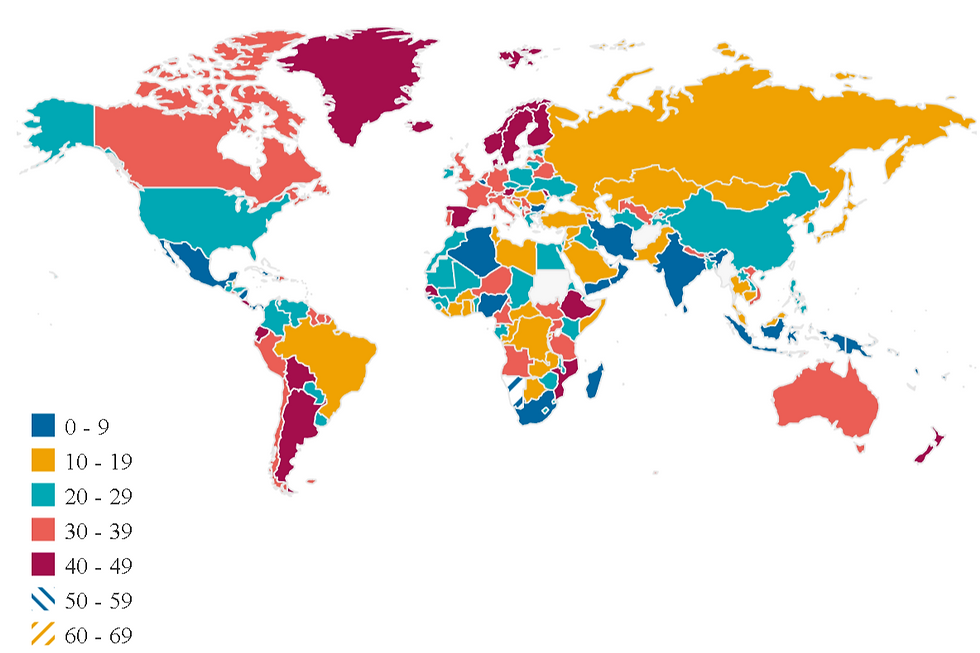The rise of women in government is impressive and not enough
- rebeccafeldman192
- Jun 10, 2024
- 2 min read
Having women in elected office is central to a healthy and effective democratic process. Gender equality enables governments to better represent the full diversity of their constituents.
And, although the numbers of elected women continues to inch up slowly- women remain underrepresented everywhere.
Remember- for purposes of this discussion-women are 50% of the world's population.
According to the tracking organization, the Inter-parlimentary Union- at the end of 2023, women accounted for 26.9% of elected legislators/parlimentarians, an increase of 0.4 percentage points versus the previous year. Progress yes but, slow to be sure.
The 2024 map below, shows the range of percentage of women in office around the globe. However, as we can see - there remains a vanishingly small number of countries with even close to 50% representation and a stubbornly large number below 30% - including the United States and Sierra Leone.
As of 2000, this map shows the state of women in government a mere 24 years ago. It demonstrates the strides women have made in recent years while giving a glimpse into the historically low numbers.
Here's the map as of 1980 and what can say other than- WOW! those are low numbers of women in government.
And lastly, the map from way back when... 1960. Not one country in the world is above 30% and vast majority are in the single digits.
So what can be done to increase women’s representation?
Surveys of women parlimentarians show there are three factors affecting the numbers of women in parliament: electorial quotas, a harsh political environment, and violence against women in politics.
In 2023, Sierra Leone made significant progress on women’s parliamentary representation, largely due to the use of gender electoral quotas. The Gender Equality and Women’s Empowerment Act, enacted in January 2023, requires that at least 30% of elected parliamentary seats, cabinet positions and roles in other institutions be held by women.
This new law has led to a substantial increase in women’s political representation. Previously, women held only 14.5% of elected seats in parliament. Following the 2023 elections, however, that figure increased to 30.4%. In addition, one woman was indirectly elected to the 14 seats reserved for provincial leaders, bringing women’s total representation to 28.2% of 149 seats – significantly higher than the West African average of 18.4%.
The elections of 2023 confirmed existing evidence that quotas can be a decisive factor in increasing women’s representation. Sierra Leone is not often in the position of being a "good news" spot for gender equality and progress however- in this case- good for you Salone- you met your quotas! Now lets increase it to 50% for equity sake!










Comments